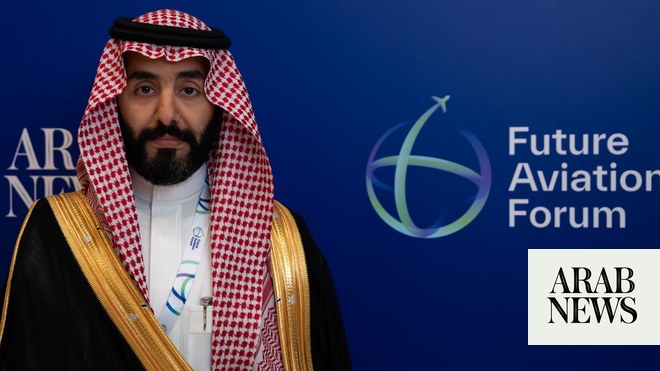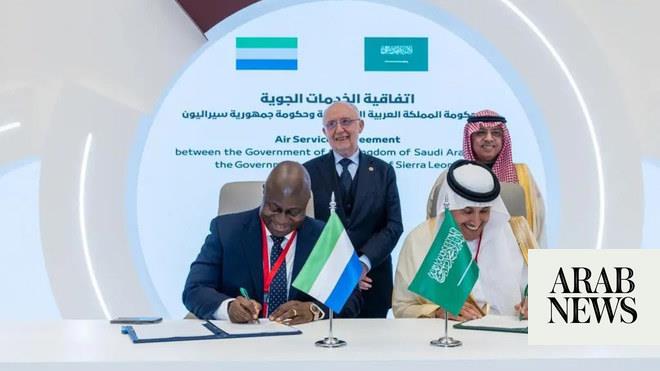
RIYADH: Increasing passenger numbers and expanding flight routes are among the key objectives of Saudi Arabia’s aviation strategy, according to a senior official.
In an interview with Arab News on the sidelines of the Future Aviation Forum held in Riyadh, Vice President of the General Authority of Civil Aviation for Quality and Traveler Experience, Abdulaziz Al-Dahmash, said the Kingdom has set “very ambitious targets” in this sector.
These include tripling the number of passengers compared to 2019, handling 4.5 million tonnes of cargo, and establishing more than 250 direct destinations from the Kingdom’s airports to global locations.
“Those key targets need enablers, and one of the key pillars is our passenger experience, and we always say that the passenger comes first, so from that perspective, we started different programs from a regulator perspective,” Al-Dahmash told Arab News.
He added: “We said, total quality evaluation or air total quality evaluation program. This program focuses on the passenger experience across all the touchpoints at the airport, from entrance to boarding.”
Al-Dahmash noted that Saudi Arabia’s aviation strategy includes four sub-programs aimed at enhancing passenger experience to meet 2030 targets.
The first focuses on reducing waiting times through operational standards, while the second emphasizes traveler feedback and satisfaction.
The third ensures infrastructure readiness by inspecting over 1,300 items annually per terminal.
The fourth addresses passengers’ complaints and improves responsiveness and resolution. These initiatives have already shown significant progress since 2019.
“We are still moving forward to achieve our targets in 2030,” Al-Dahmash stressed.
Additionally, the investment showcases in the Kingdom align closely with the national aviation strategy’s ambitious goals.
The initiative presents a substantial economic opportunity amounting to $100 billion, with half of this investment targeted toward developing the airport infrastructure.
Mohammed Al-Khuraisi, the executive vice president of strategy and business intelligence at GACA, told Arab News: “We have King Salman Airport (undergoing a) massive expansion from 40 million to 120 million capacity, similarly, Jeddah Airport. Then we have around $40 billion worth of investments in terms of airlines, that entails commercial airlines.”
He added: “We have heard Saudia major announcements yesterday of around 105 aircrafts. Prior to that, there were Riyadh Air major announcements as well, and we expect more waves of aircraft acquisitions in terms of passenger, airlines or also cargo airlines.”
Apart from airline investments, around $10 billion is allocated to various aviation-related services such as special economic zones, cargo logistics and general aviation as well as ground handling, maintenance, repair, and catering, illustrating a comprehensive approach to supporting the industry’s expansion and development.
Ali Rajab, executive vice president at GACA, air transport and international cooperation. AN
On the air connectivity front, Ali Rajab, executive vice president of air transport and international cooperation at GACA, highlighted Saudi Arabia’s ambitious plans for air connectivity, aiming to increase the number of destinations served by the country’s airports.
“We will have by 2030, 250 destinations that would reach to Saudi Arabia. In 2019, we were only 99, And today we have reached to 149 destinations,” Rajab said.
He added: “This conference focuses on connectivity, and we have around 73 airline representatives here. We have most of the industry, including airports and, logistics services and ground handlers, catering, etc., all of these companies help to have more connectivity, helping the world, connecting each other.”
Rajab also expressed confidence that by 2030, Saudi Arabia will emerge as the leading country within its region in terms of aviation and will rank fifth globally in the industry.











